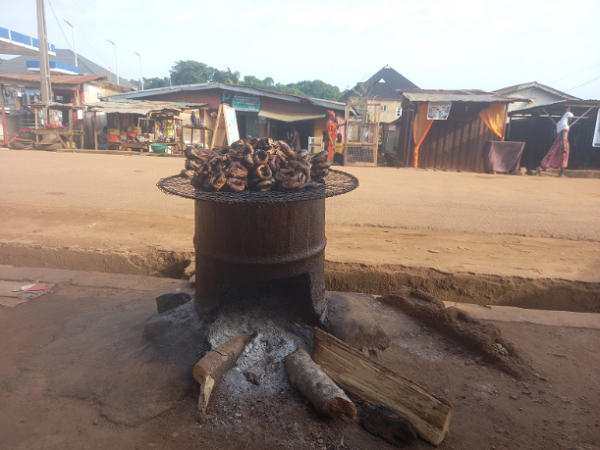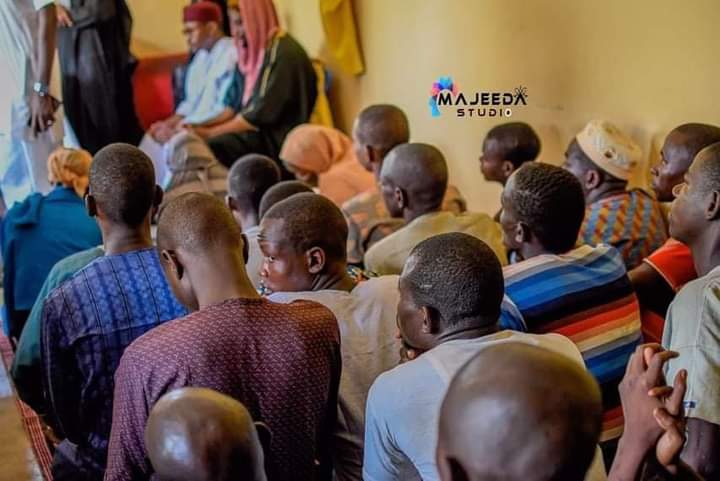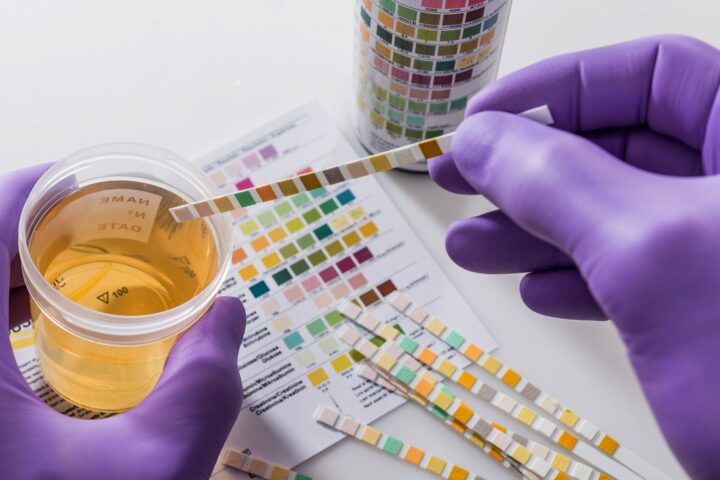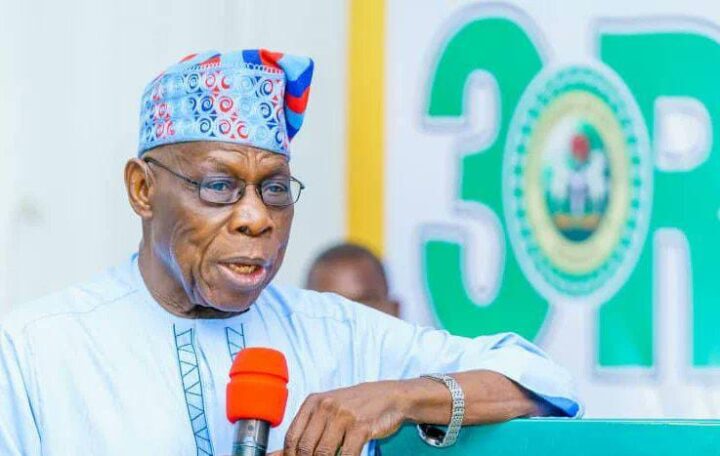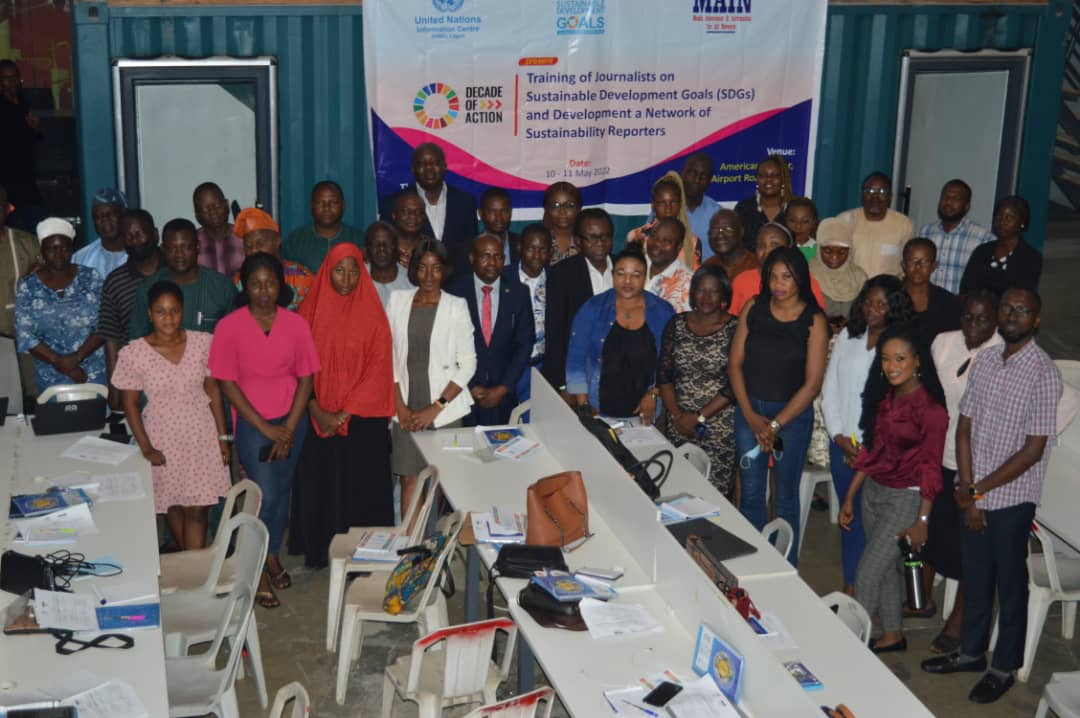BY ADEBAYO ABDULRAHMAN
Sherifat Azeez untied her headgear as she walked this reporter into her living room. Its roughly patched walls and largely broken ceiling were the most striking features in the room. The kitchen on the other hand was dimly lit with unpainted walls darkened by smoke.
In a corner of the kitchen, a charcoal stove was surrounded by ashes. Next to it was a 6 kg cooking gas cylinder, whose blue colour had almost entirely faded, an effect of rusting from abandonment.
A mother of four, Sherifat made use of liquified petroleum gas (LPG), also called cooking gas, for almost eight years. In 2021, she had no choice but to stop. “It became unaffordable,” she said in Yoruba language.
Advertisement
Before making what she described as the “right decision” to completely abandon cooking gas, she first started using it sparingly.
“I [would] use the gas cylinder only in the morning during weekdays to cook for my children who have to leave for school by 7:30 am,” she said.
“Even though the cost of filling the gas had already increased a bit, I was managing to fill it because it is harder and more stressful to use charcoal to cook very early in the morning.”
Advertisement
In spite of the extra stress, the middle-aged trader eventually resorted to using charcoal for all her cooking activities due to its affordability and the rising prices of cooking gas.
Cooking gas in Nigeria
LPG is a byproduct of the refinement of crude oil produced during oil refining or extracted during the natural gas production process. Generally, in Nigeria, gas products are struggling to gain widespread acceptance but LPG stands out as a popular product.
Its popularity is due to its utilisation as fuel for cooking in various homes. In 2021, the federal government said an estimated five percent of the country’s population relies on cooking gas for domestic purposes.
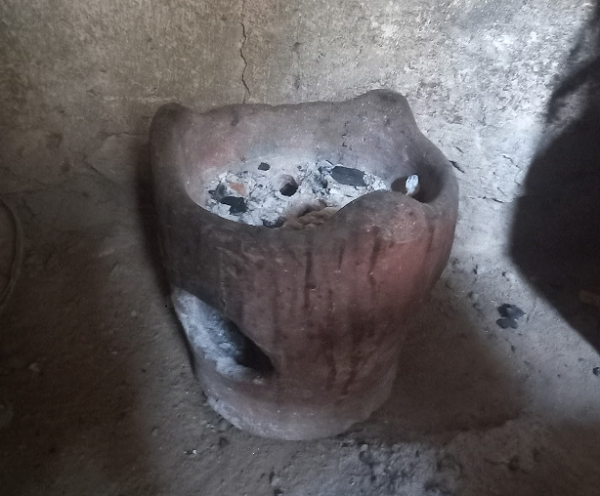
Ranked ninth globally, Nigeria has the largest proven gas reserve in Africa. The country’s gas reserve is so large that analysts claim its flared gas alone can power Trinidad and Tobago, a country with a population of 1.4 million people, for a year.
Advertisement
So it came as no surprise when on March 29, 2021, the federal government declared the ‘Decade of Gas’. Announcing the initiative, President Muhamadu Buhari said it was in line with his administration’s resolve to prioritise the utilisation and development of gas. The president’s announcement indicated that the country was set to fully implement the contents of the National Gas Policy approved by the federal executive council in 2017.
Foremost among the flagship policies to achieve this is the National LPG Expansion Programme which seeks to increase the domestic utilisation of LPG. During this period, the country’s energy mix for cooking was firewood, 60 percent; kerosene, 30 percent; charcoal, 5 percent and LPG, 5 percent.
“The government’s ambition is to reverse that and change that 5 percent for LPG to 90 percent in 10 years,” Vice-President Yemi Osinbajo had explained.
Osinbajo noted that the effective implementation of the policy would move Nigerians away from using harmful cooking fuels to LPG, which he described as a “cleaner and more efficient energy”.
Advertisement
To achieve this, the VP said the federal government would adopt 4As – Accessibility, Acceptability, Affordability, and Availability. Barely a year after, the number of Nigerian households that rely on LPG for cooking, rather than increase, continued to thin out due to the incessant rise in its price.
Rising cost limits gas usage
Over the years, the price of cooking gas in Nigeria has continued to rise at a trajectory poised to continue without any effective intervention. Due to the absence of a uniform pricing system, the cost of cooking gas differs largely from state to state. So to understand the plight of Nigerians like Sherifat, a resident of Oyo state, analysing the trajectory of the increase in the cost of cooking gas in the state becomes imperative.
Advertisement
The last time she could comfortably afford to fill her gas cylinder was in 2020. At the time, a report by the Nigeria Bureau of Statistics placed the average cost of 5 kg of gas in Oyo state in January 2020 at N1,800. By September, the average cost had slightly increased to N1,857. On average, throughout that year, the average cost of filling a kilogram of LPG in the state fluctuated between N360 and N390.
But by the beginning of 2021, data locally sourced from retailers by this reporter indicated that the cost of 1 kg slightly rose to N400 between January and May. In June, it began to rise at a relatively more significant rate, reaching a peak of N750 per kg in December. Currently, the price of a kilogram of gas in the state is N700, representing a 75 percent increase over the last 12 months.
Advertisement
Due to this incessant price increase, the percentage of Nigerians who can afford to use gas for domestic purposes continues to thin out. An estimated 83 million people, which represents 40 percent of the country’s population, live below the poverty benchmark line of $2 daily.
This explains why Bisi Ikubayeje, a smoked fish seller in the Ajibode area in Ibadan, sees firewood as her only option, despite acknowledging the dangers associated with its smoke.
Advertisement
“The primary reason why I have continued to use firewood is that it is cheaper than gas,” the middle-aged woman, who has been involved in the business for over 20 years, said.
Taking cover from the sun under a shade, she explained that a N400 pack of firewood is enough to smoke all her fish daily. “This is an extensive large smoking process that lasts throughout the day, with the cost of refilling gas, I can’t afford to use it.”
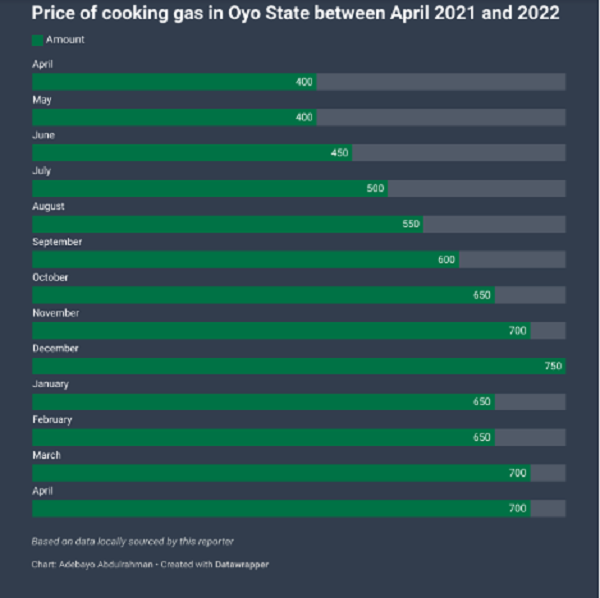
Environmental implications
Aside from the recognition of LPG by the World Health Organisation (WHO) as a clean cooking solution to reducing exposure to household air pollution, especially in low-income households, further research has shown that it is poised to deliver substantial health, economic, and social benefits.
Due to its low carbon-to-hydrogen ratio, LPG – a mixture of two hydrocarbons, butane and propane – contributes little to global warming. In 2019, Nigeria’s ministry of petroleum resources said the LPG Penetration Programme is a component of the country’s intended nationally designed contributions under the Paris Agreement for reducing annual greenhouse gas emissions by 2020.
However, due to the incessant rise in its cost, which creates an affordability gap, Nigerians like Sherifat and Bisi have no choice but to embrace cheaper alternatives for cooking, primarily through kerosene, firewood and charcoal.
The problem with these alternatives is that they increase the emission rate of greenhouse gasses and drive deforestation among other environmental disasters such as desertification, loss of biodiversity, soil erosion, and loss of wildlife.
For example, firewood, which serves as the primary cooking fuel for 72 percent of Nigerians, is derived by cutting trees illegally. Before now, 50 percent of the country’s landmass was covered by trees but today, 90 percent of these trees have been removed. About 36 percent of these trees were removed in the last 20 years.
According to Emmanuel Omisore, a professor of Urban and Regional Planning at the Obafemi Awolowo University, the effects of deforestation on the environment range from soil erosion and loss of biodiversity ecosystems to loss of wildlife and increased desertification.
“The risks from deforestation are huge. Forest loss and damage is the cause of around 10% of global warming. There’s simply no way we can fight the climate crisis if we don’t stop deforestation,” he said.
Nosa Tokunbo, a lawyer and environmentalist, noted that the illegal use of firewood for cooking has negative health and environmental implications.
“If there is any need to cut one tree, you must arrest the situation by planting two or more trees as a replacement,” Tokunbo said.
The experts further explained that the importance of forests in the fight against climate change can not be overemphasised because trees, also known as carbon banks, protect the planet from the largest greenhouse gas — carbon dioxide (CO2).
Aside from the negative implications of these alternative cooking practices on the environment, the effects of their smoke on the health of Nigerians are also deadly.
According to the WHO, smoke emanating from firewood used for cooking is the third greatest killer of women and children in Nigeria, as no fewer than 98,000 Nigerian women die annually from smoke inhaled during cooking with firewood.
The smoke also causes several non-communicable diseases, like lung cancer, that often lead to premature deaths.
FG must take deliberate actions
The inability of marketers to access foreign exchange and the introduction of 7.5 percent VAT on gas products are major factors responsible for the incessant increase in the price of cooking gas, according to Bassey Essien, the executive secretary of the Nigerian Association of LPG Marketers.
Essien said the Nigerian government is “not sincere” about its efforts regarding LPG. The implementation of VAT on gas products, which was initially stopped in 2018 to increase investment in the sector, contradicts the government’s claim about making LPG accessible and affordable.
Aside from these, there are other deeper issues affecting cooking gas prices, such as the over-reliance on imports to meet local demand and the international pricing model adopted by the Nigeria Liquefied Natural Gas Limited.
Founded in May 1989, the NLNG is an incorporated joint venture owned by the federal government, through the Nigerian National Petroleum Corporation, and three global oil companies. It was founded to harness the country’s “vast natural gas resources and produce Liquefied Natural Gas (LNG) and Natural Gas Liquids”.
In 2021, the company supplied an estimated 400,000 metric tons of LPG to the Nigerian market. Earlier this year, this company announced that it has resolved to supply its entire LPG product to the country.
But despite this, the local supply of LPG does not come close to meeting the demand of 1.2 million metric tonnes. So to meet up with local demand, the country relies largely on importation. “The implication is that the importers will embed expenses incurred into the price they sell LPG to the marketers at the depots and terminals. This is then passed on to end users of the product,” Essien noted.
To stop the incessant hike in price, Bala Zakka, an oil and gas analyst, said Nigerian leaders must accept that internal refining and domestication of refineries is the only sustainable way forward. “The refusal to accept this is the principal reason why Nigeria is experiencing all these,” he noted.
“When you refine, the first product you get is LPG, known as cooking gas. If we refine internally, the first thing that would happen is that there would be self-sufficiency in terms of cooking gas. Because we are not refining internally, citizens are now using firewood.”
Speaking on the internal pricing model which affects local prices, Zakka maintained that the NLNG is a consortium that does not belong to Nigeria. “It is only what belongs to Nigeria that we can have the flexibility to determine what happens. The LNG’s target is the international market right from day one,” he said.
He noted that without refining locally, the only other option is to continue to import LPG to meet the local supply gap. “But the only real solution is to refine internally. We already know our problem. It would also save us from foreign exchange pressure,” the public affairs analyst added.
The report was funded by I-79 Media Consults under the ‘Rewriting the Narratives of Environmental Crimes in Nigeria’ project which is supported by the Environmental Reporting Collective (ERC).
Add a comment
